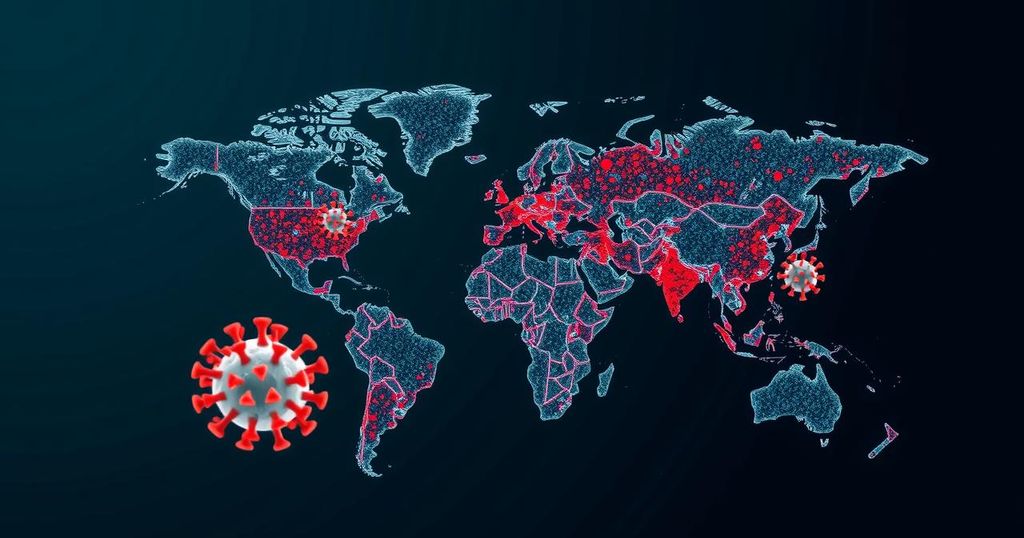Assessing Global Preparedness Amidst Concurrent Health Crises: Lessons from the Past and Future Risks
Currently, approximately 4.5 billion people lack essential healthcare, amid ongoing public health emergencies such as mpox and cholera. The global threat landscape includes new COVID variants and rising antimicrobial resistance. Experts stress the need for improvements in global healthcare preparedness, investment in health systems, and international collaboration to tackle emerging health risks and ensure equitable access to healthcare.
The global health landscape is currently characterized by significant vulnerabilities, with approximately 4.5 billion individuals lacking access to essential healthcare services, according to the World Health Organization (WHO). This concerning statistic emerges amidst ongoing public health crises such as the mpox outbreak, which has confirmed over 100,000 cases and at least 200 fatalities worldwide, prompting the WHO to declare it a public health emergency earlier this year. In addition, cholera continues to spread in regions such as Sudan, where nearly 15,000 cases have been reported, resulting in 473 deaths. A new variant of COVID-19 has also emerged, infecting individuals in 27 countries. At the 2024 World Economic Forum, experts warned that antimicrobial resistance (AMR) has surged to become a leading cause of global mortality, with projections that it could claim 10 million lives annually by 2050. Furthermore, a recent report on the impacts of climate change on health estimates that an additional 14.5 million deaths could result from climate-related factors by 2050, alongside an economic toll of $12.5 trillion worldwide. In an interview with Dr. Ahmed Ogwell, Vice President of Global Health Strategy at the United Nations Foundation, insights were provided regarding the global healthcare situation and the urgent need for enhanced preparedness in the face of potential pandemics. Dr. Ogwell emphasized that the world currently bears a moderate risk level due to various factors: the ongoing mpox outbreak, a resurgence of diseases like dengue and cholera, and the enduring impact of COVID-19 on health systems. He urged the international community to improve collaboration and preparedness as public health threats transcend borders. Reflecting on lessons learned from the COVID-19 pandemic, Dr. Ogwell noted a concerning decline in public vigilance, with the population largely abandoning preventive measures such as mask-wearing and hand hygiene. He highlighted the disbanding of crucial healthcare systems established during COVID, which must be reinforced in order to effectively respond to new outbreaks. Addressing the geopolitical challenges affecting global health, Dr. Ogwell asserted that humanitarian crises foster environments conducive to the spread of infectious diseases. Such conditions may inadvertently lead to the emergence of antibiotic-resistant pathogens that pose serious threats to public health worldwide. Climate change is also acknowledged as a driving force behind emerging health risks, as it expands the range of diseases into previously unaffected areas and increases the likelihood of natural disasters that facilitate disease proliferation. Moreover, the article delves into the systemic issues surrounding healthcare accessibility. Dr. Ogwell attributed the inadequate healthcare access for billions to insufficient government investments and the commercialization of healthcare systems. This reality creates barriers for vulnerable populations, further exacerbating health inequities globally. In summary, the contemporary global health situation is precarious, with multiple concurrent threats such as emerging infectious diseases and the lasting impacts of the COVID-19 pandemic. Adequate funding, a focus on robust healthcare systems, and international solidarity are essential to prepare for and mitigate future public health crises.
The world is currently facing a significant healthcare crisis, with billions lacking access to essential services. The emergence of new infectious diseases, including mpox and cholera, combined with the residual effects of COVID-19 and increasing antimicrobial resistance, raises critical questions about global readiness for future pandemics. In addition, climate change further complicates the global health scenario, posing new risks and challenges to public health systems.
The global health environment is under considerable strain, requiring urgent actions to enhance preparedness for future pandemics. Improving healthcare access, reinforcing surveillance systems, and fostering international cooperation are essential in mitigating the risks of emerging diseases. The lessons learned from past health crises must be prioritized to ensure the safety and health of populations worldwide.
Original Source: www.aljazeera.com




Post Comment